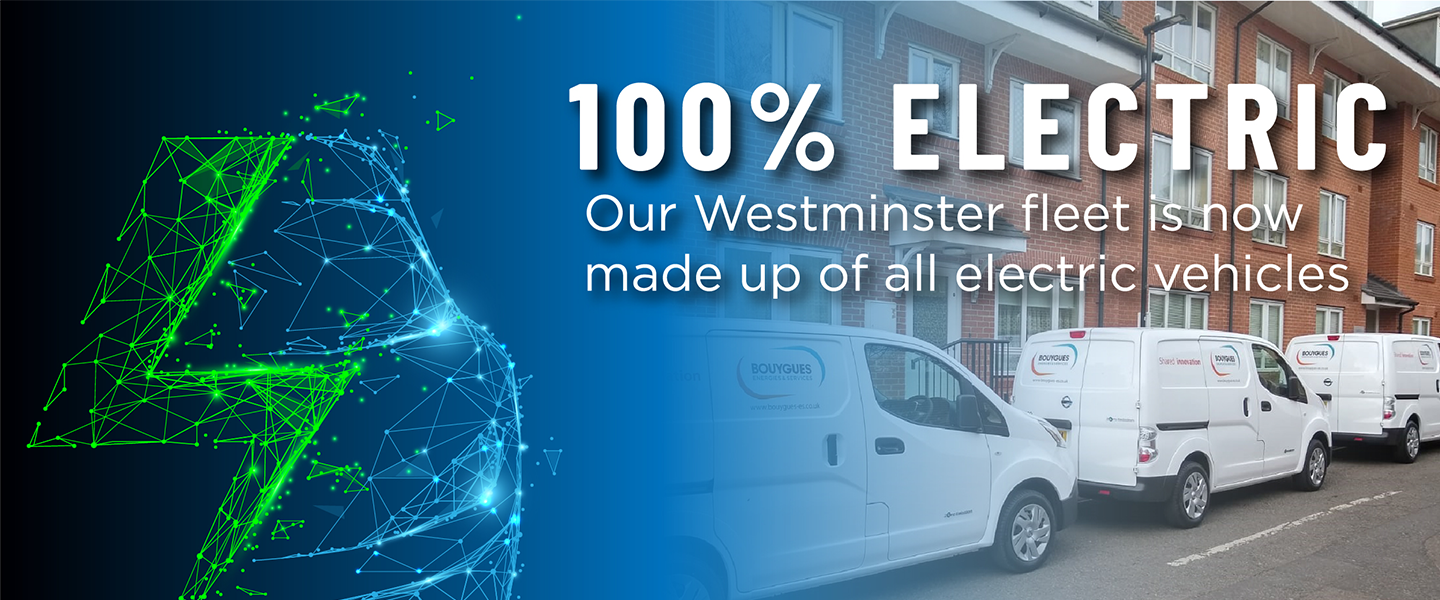Actualité
Our Carbon Footprint Continues to Shrink as our Electric Fleet Increases
We are committed to reducing our impact on the environment by increasing the electric vehicles in our fleet. Our average Co2 generated per km now stands at 171.36g, compared to 210.66g this time last year, a figure which is continuing to reduce. This year we have replaced 7 vehicles in our fleet with electric vehicles with another 15 due to be replaced in early 2022. This will raise the electric vehicles in our fleet to 20%. Our aim is for this to dramatically increase as the range of larger electric vehicles increases. We are delighted that some of our contracts now have 100% electric fleet such as Westminster City Council.
Our vehicles are used by our teams in mobile engineering, grounds and window cleaning, street lighting teams and for the work we do up and down Britain’s motorways and major trunk roads. We choose electric vehicles because as well as having a very low carbon footprint they do not emit any other pollutants which is particularly important when we are working in areas of poor air quality.
Wider initiatives to make an even bigger impact
To help us make a real difference, we also invest in the following initiatives:
Vehicle charging: We have the capability in-house to install any vehicle charging requirements ourselves, from fast to ultra-rapid. This is efficient and cost effective both for our fleet and our clients’ vehicles. We are increasing the amount of chargers located at our client’s sites. Currently we have 14 chargers across our sites with many more due to be installed at 5 additional sites shortly.
In-vehicle telemetry: To enable more efficient driving all our vehicles have the latest in-vehicle telemetry. Telemetry gives us information about a vehicle or driver's performance by collecting data from sensors within the vehicle. This helps us to direct the best-placed vehicles to each job and to avoid traffic jams. We can also monitor driver performance; harsh braking, rapid acceleration and fuel efficiency, so that we can help all drivers to be more efficient. In addition the telemetry helps identify which drivers might need improvement in specific areas.
Company car scheme: We have launched a new company car scheme which encourages our staff to drive electric and plug in hybrid vehicles. As part of this 18 electric cars will be delivered in early 2022.
Training: We have rolled out online training to all our staff in partnership with FORS. We teach our drivers not only how to drive more efficiently but also more safely, which is vital when crews are on the road so much.
The benefits beyond our carbon footprint
These initiatives which help us reduce our Co2 emissions on the road, also have a wider impact on the environment and society.
Environmental benefits: Our traditional diesel fleet, like others, was responsible for large levels of Co2 emissions and noxious tailpipe emissions. A switch to electric vehicles addresses both issues and can also help to reduce levels of noise nuisance if our crews are working in residential streets.
Efficiency: Real-time vehicle telemetry allows us to respond more quickly to emergencies and call-outs, making sure the right vehicle attends the job. This means more time working and less time on the road, as well as reducing fuel costs and emissions.
Reduced cost: Improved vehicle efficiency also reduces fuel usage and electric vehicles avoid most congestion and parking charges.
Happier, safer drivers: Improved driving techniques can help our staff to stay safe and to drive more efficiently. There are also indications that levels of tiredness and stress are also reduced.

Latest news
Find all the topics that make Bouygues Energies & Services news: projects, innovations, public and client events, partnerships, press releases ...
There are no results for this choice


